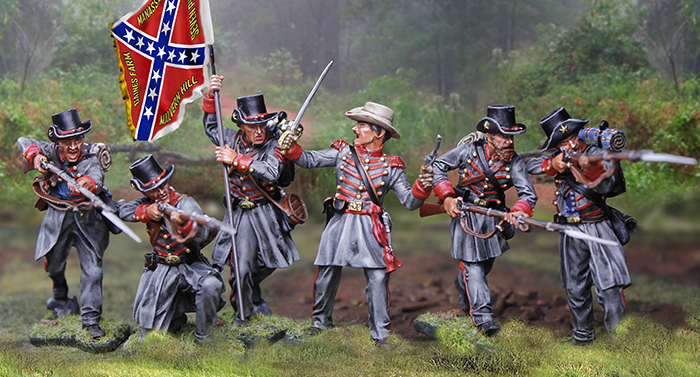A plea from the Editor:
We ran a poll on our Facebook page this past week asking a simple question: “Do you hold a positive or negative view of the Confederacy?” Disconcertingly, 73% of the over 900 respondents, almost all of whom are presumably conservatives, said they hold a positive view.
That’s just not the right answer.
Everyone is entitled to their own opinion, but there are extreme examples of opinions that are outright wrong, and it is outright wrong to have a positive view of the Confederacy. Note that the question did not ask about the propriety of taking down Confederate statues, or kneeling for the national anthem, or the importance of remembering history. And it did not even ask about the Confederate flag, which a lot of people identify simply with Southern pride, which I’ll address in a few paragraphs. It simply asked whether one held a positive view of the Confederacy. And I’m sorry, I’m sure the Antebellum South had a lot of positive attributes, but the Confederacy existed for one purpose, and one purpose only: to establish an independent nation that legally protected slavery. You cannot have a positive view of it, because you cannot extricate slavery from its reason for being, and that by itself overshadows everything else about the Confederacy, whatever else there was.
Conservatives like to remind anyone who will listen that the KKK was a Democratic organization, that it was Democrats who advanced Jim Crow laws, it was Democrats that fought against desegregation, while it was Republicans who in greater numbers supported the Civil Rights Acts and, lest we forget, freed the slaves.
But we do not deserve the legacy of Lincoln, and we have no right reminding anyone of the Democrats’ past, when so many of our number have a positive view of a self-identified slavery advocacy movement. We conservatives need to state, without equivocation, that the Confederacy, which murdered hundreds of thousands of Americans to try to keep black people (also Americans!) in bondage, is not something that any decent person should think of in a positive light.
As to the Confederate flag, there are undoubtedly plenty of non-racist people for whom it is simply a symbol of Southern pride — the Lynyrd Skynyrd, Dukes of Hazzard, NASCAR types — a defiant response to the repugnant elitism of the Northeast and the West Coast establishment types who constantly thumb their noses at middle America, and openly disdain the South, which they see as hopelessly inerudite, inurbane, and parochial. To be sure, the South has plenty to be proud of. I went to college and law school in the South, and, in addition to it having a more agreeable pace – there is a certain languor that manages to pervade even the coldest of winters — I found the people to be much more polite, well-mannered, and altogether kinder, than their Northern counterparts. (Then again, I’m from New Jersey, so that’s not saying much). They also, and likely not coincidentally, seem to place a much greater emphasis on family, faith, and self-reliance, while at the same time emphasizing the importance of community. The South has every right to be proud of this, and these are the values that many Southerners see represented by the Confederate flag.
But for many, it is impossible — and a negation of history — not to see in that flag the legacy, if not outright advocacy of white supremacy, proudly flying, as it did, for the Confederate forces fighting to keep innocent people in chains. There’s a reason it’s called the “Confederate” flag, after all, and not the “Southern pride” flag. And there’s a very obvious reason why it is adopted by white supremacist groups. Because while the Confederate flag might not reference slavery for many, it does for others, and not unreasonably, especially for those who would be slaves had they lived in the wrong era, in the wrong part of the world, and under the wrong flag. We should be sensitive to that.
Curiously, a lot of the “positive view” crowd defended their vote in the comments section of the poll with the totally off-point argument that “we cannot erase history,” and other comments asserting a historical imperative. But who said we should erase anything? We should not erase from history the Great Depression, or Stalinism, or the Holocaust, because those are important to remember, but neither should, or would, any level-headed person ever express a “positive view” of any of those things. Why, then, does the Confederacy deserve special exemption from its atrocious history, such that merely being a part of history lends itself to a positive view? If anything, to hold a positive view of the Confederacy requires that we erase from history the crimes against humanity that it stood for and effectuated.
Look, I get what’s really happening here. This isn’t about the “positive view” crowd afraid of anyone erasing history, other than the pseudo-history that sees the Confederates as noble victims. The Confederacy has a certain quixotic allure, sticking it to big government as it did, and rejecting centralized heavy-handedness, in favor of independent, self-rule. We’d all love to do that! That is, after all, what the Founding Fathers of our very nation did, in rebelling against the British crown. And we all love a great underdog story, and the South, with its fewer numbers and agrarian economy, taking on the vastly superior North, with its greater population and industrialized economy, fits that mold perfectly. And, frankly, today’s South, with its values and way of life, is in many ways, and to many of us, vastly preferable to the North, with its high tax, deep blue states, to say nothing of its decaying cities, morals, and values, and fetid secularism.
But that leaves out the most salient part of the story.
If the Confederates had fought over a trade dispute, or unfair taxation, or any other matter of autonomy, they would deserve our sympathy. Conservatism stands for nothing if not the right of self-rule. But the Confederates went out of their way to make their cause known, and ensure that anyone and everyone would understand that it was singularly tied to the supremacy of the white race and the enslavement of blacks, and their flag was the symbol of the fight to do so, around which they rallied. Read any of the declarations of causes of the seceding states, and it’s right there in black and white. And while the Confederacy, and its flag, undoubtedly mean something different to many people now, there are enough people for whom they retain their original, intended, explicit meaning, that both should be rejected as symbols of the worst movement, the worst moment, and the worst institutions in American history.




